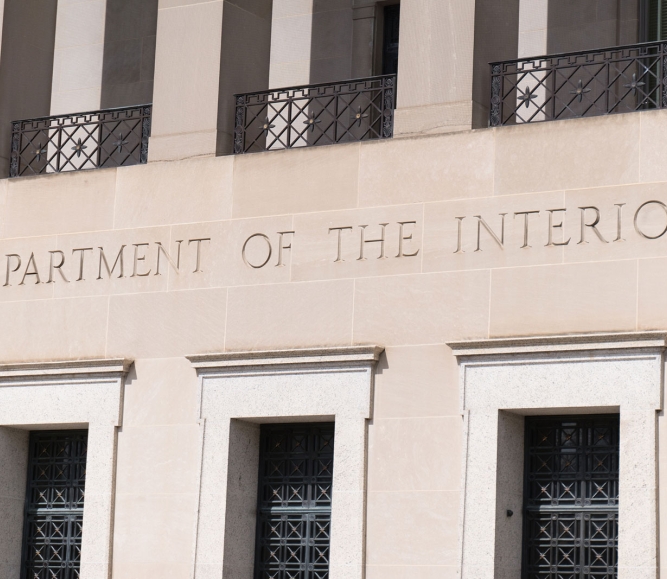U.S. Bureau of Indian Affairs unveils new Final Rule for Tribal land-in-trust process
Author

Paige Mellerio

Maxx Silvan
Upcoming Events
Related News

Key Takeaways
In December 2023, the U.S. Department of the Interior Bureau of Indian Affairs (BIA) published the Land Acquisition Final Rule defining the process by which BIA can take tribal land into trust of the federal government. The Final Rule was published approximately one year after the Proposed Rule was published in December 2022.
Here is how the process has changed:
As anticipated, the Final Rule largely mirrors the process reforms laid out in the Proposed Rule. Notable changes to this process include:
- A declaration that the Secretary of the Interior's policy is favorable towards taking land into trust to support the welfare of tribes. Previous iterations of the rule had not expressed the Department of the Interior's stance on this process.
- Speeding up the process by requiring BIA to issue a decision on a land into trust request within 120 days of the submission of a complete application package.
- The elimination of certain previous criteria and established several presumptions for four different forms of acquisitions:
- On-reservation
- Contiguous to existing reservations
- Off-reservation
- Initial land acquisition
- The addition of a regulatory process to determine whether a tribe was "under federal jurisdiction" in 1934, as required by Carcieri v. Salazar.
How might this affect counties?
The Final Rule makes no changes to the 30-day period for state and local stakeholders, including county governments, to comment on pending land-in-trust acquisitions under consideration by BIA. The Final Rule maintains the current process of considering off-reservation impacts for initial acquisitions, which is a key factor for counties working with federal, state and tribal partners throughout this process.
NACo recognizes and respects the tribal right of self-governance to provide for tribal members and to preserve traditional tribal culture and heritage. In similar fashion, NACo recognizes and promotes self-governance by counties to provide for the health, safety and general welfare of all members of their communities. To that end, NACo supports active participation by counties on issues and activities that have an impact on counties. As such, NACo supports the improvement of the land-in-trust process, including a revision of the Indian Reorganization Act of 1934, to require:
- adequate advance notice of applications,
- actual meaningful consultation (including providing counties 120 days to respond to applications and requiring the Department of the Interior/Bureau of Indian Affairs to respond within 90 days, in writing, to such comments explaining the rationale for acceptance or rejection of those comments), and
- to the extent constitutionally permissible, the consent of the affected counties.
NACo also opposes administrative action or a legislative "quick fix" to overturn the United States Supreme Court decision in the case of Carcieri v. Salazar. NACo calls on Congress to address any Carcieri issues as part of a comprehensive examination and congressionally enacted reform of the fee land into trust process.
What's next?
The Final Rule on BIA's land-in-trust process is scheduled to take effect on Thursday, January 11, 2024.
NACo will continue to monitor updates from BIA and plans to provide counties with additional information on this updated process in the coming months.
Want to learn more?
NACo Blog on Land-In-Trust Proposed Rule
Understanding How Proposed Changes to the Land-In-Trust Process Could Impact Counties (NACo Webinar Recording)
Advocacy
U.S. Bureau of Indian Affairs releases proposed rule to streamline lands into trust process for tribes
On December 5, the U.S. Bureau of Indian Affairs published its new proposed rule on the federal lands into trust process for tribal governments and individual tribal members.

Related News

U.S. House passes final minibus funding package
Congress introduced the final FY 2026 Appropriations package, including key county priorities related to transportation, housing, health, emergency management and public safety

U.S. Congress passes minibus funding package
U.S. House and Senate appropriators passed a “minibus” appropriations package containing Fiscal Year (FY) 2025 Interior-Environment, Commerce-Justice-Science and Energy-Water spending bills.
